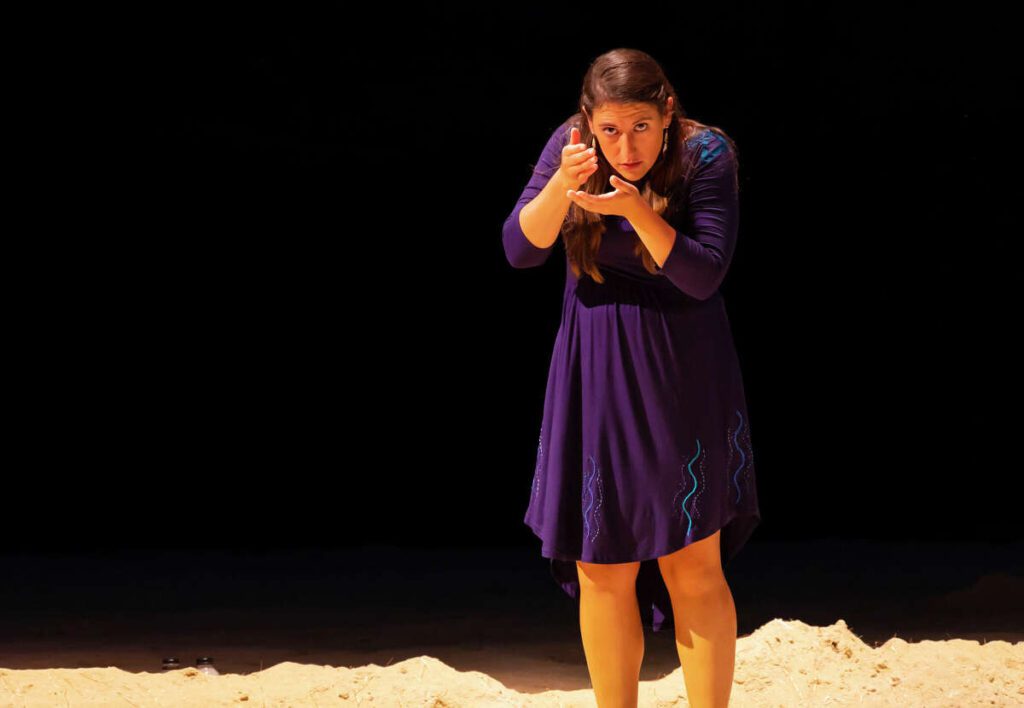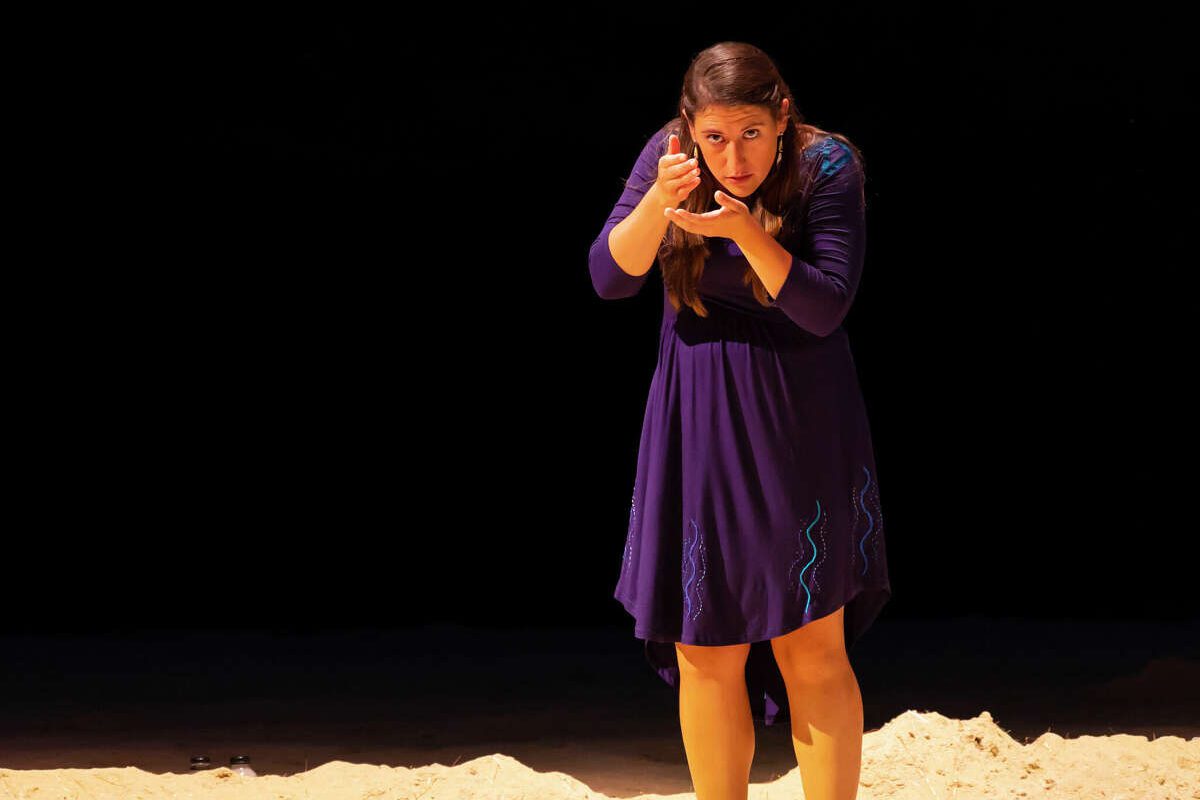
Sayet’s solo show “Where We Belong” runs at the Hudson Valley Shakespeare Festival through Aug. 22

Playwright Madeline Sayet wouldn’t blame you if you thought the founding of the United States was a one-way street — if you were under the impression, held by many Americans, that as Europeans colonized the “New World,” its Native peoples only moved in one direction. But if you think this narrative tells the whole story, then boy, does Sayet have news for you.
“A lot of people don’t realize that in the 1700s, Native people were traveling to the U.K. also as leaders of nations,” Sayet said. “That was also a journey being made.”
Indigenous transatlantic voyages both historical and contemporary are at the center of “Where We Belong,” a new solo show written and performed by Sayet which runs through Aug. 22 at the Hudson Valley Shakespeare Festival in Garrison. Co-produced with the Washington, D.C.-based Woolly Mammoth Theatre Company, and presented in association with Folger Shakespeare Library, “Where We Belong” is a 90-minute exploration of language, colonialism and personal history inspired by Sayet’s experience pursuing a doctorate in Shakespeare overseas.
In 2015, Sayet — a member of the Mohegan tribe of present-day Connecticut — traveled to Shakespeare’s birthplace of Stratford-upon-Avon to study the relationship between the Bard’s celebrated writings and the Indigenous peoples of North America. Interpreting Shakespeare through Native ideologies had already been a theme in Sayet’s directorial work; in 2014, she developed the Amerinda Native Shakespeare Ensemble, an initiative of American Indian Artists Inc. that provided Native actors the opportunity to appear in all-Native productions of Shakespeare plays like “Macbeth” and “The Winter’s Tale.”
But in Sayet’s Ph.D. program, she would engage with Native representation from the intellectual side of things. “I was over there more or less as an academic,” said Sayet in an interview with the Times Union by phone. “A lot of the play deals directly with being boxed in by academia.”
When Sayet returned from England a few years later, she realized she had undergone a profound change. “Where We Belong” maps the story of this transformation, connecting Sayet’s experience of disorientation to the history of her ancestors who embarked on similar trips. It’s a story that weaves together threads of colonization, historical erasure, familial ties and self-discovery.
“When I came home from the U.K. in 2018, it was the first time my feet didn’t root quite right to the earth anymore,” said Sayet. “It was the first time I came home to Mohegan and wasn’t like rooted fully, you know, down to the ancestors and, and I was like, what the f— is this? I was finding a lot of resonance with these ancestors of mine who actually crossed the ocean and then for different reasons, weren’t able to go home afterward.”
The Hudson Valley Shakespeare Festival is the third stop on a national tour that will bring “Where We Belong” to six cities. Earlier this year, the production played in Philadelphia and Chicago, and later this year, it will travel to Seattle and New York City. While a national tour is a dream come true for most theater-makers, Sayet felt apprehensive about taking “Where We Belong” on the road.
So Sayet decided she would produce the show on her own terms. To host “Where We Belong,” all six theaters involved in the tour, including the Hudson Valley Shakespeare Festival, had to commit to a “Community Accountability Rider” developed by Sayet which aims to encourage long-term partnerships between arts organizations and the communities whose native lands these institutions reside on. “It’s very much there to make sure that the tour does not become a vehicle of colonialism itself, that it actually helps promote systemic change,” said Sayet.
Some of the accountability rider’s demands focus on representation (each theater must agree never to feature actors in redface again), while others aim to expand institutional access (each organization has committed a number of free tickets to Native audiences).
“This was the baseline in my mind,” said Sayet. “If you’re committed to this as the baseline, then that means you actually are a good place for the story to go. If you don’t care about any of this, it might be actually harmful for me to try and tell my story in this place. It is a very vulnerable story of my own life.”
By building partnerships with local native artists, Sayet hopes institutions can recruit Native talent from their own regions going forward.
“Hopefully in the future, they can do work that is about here, you know, instead of bringing in a work about somewhere else,” said Sayet.
Lily Goldberg is an arts reporter and culture vulture who splits time between New York City and the Northern Berkshires and reports on whatever interests her in between. Follow her on Twitter to read more of her work.

